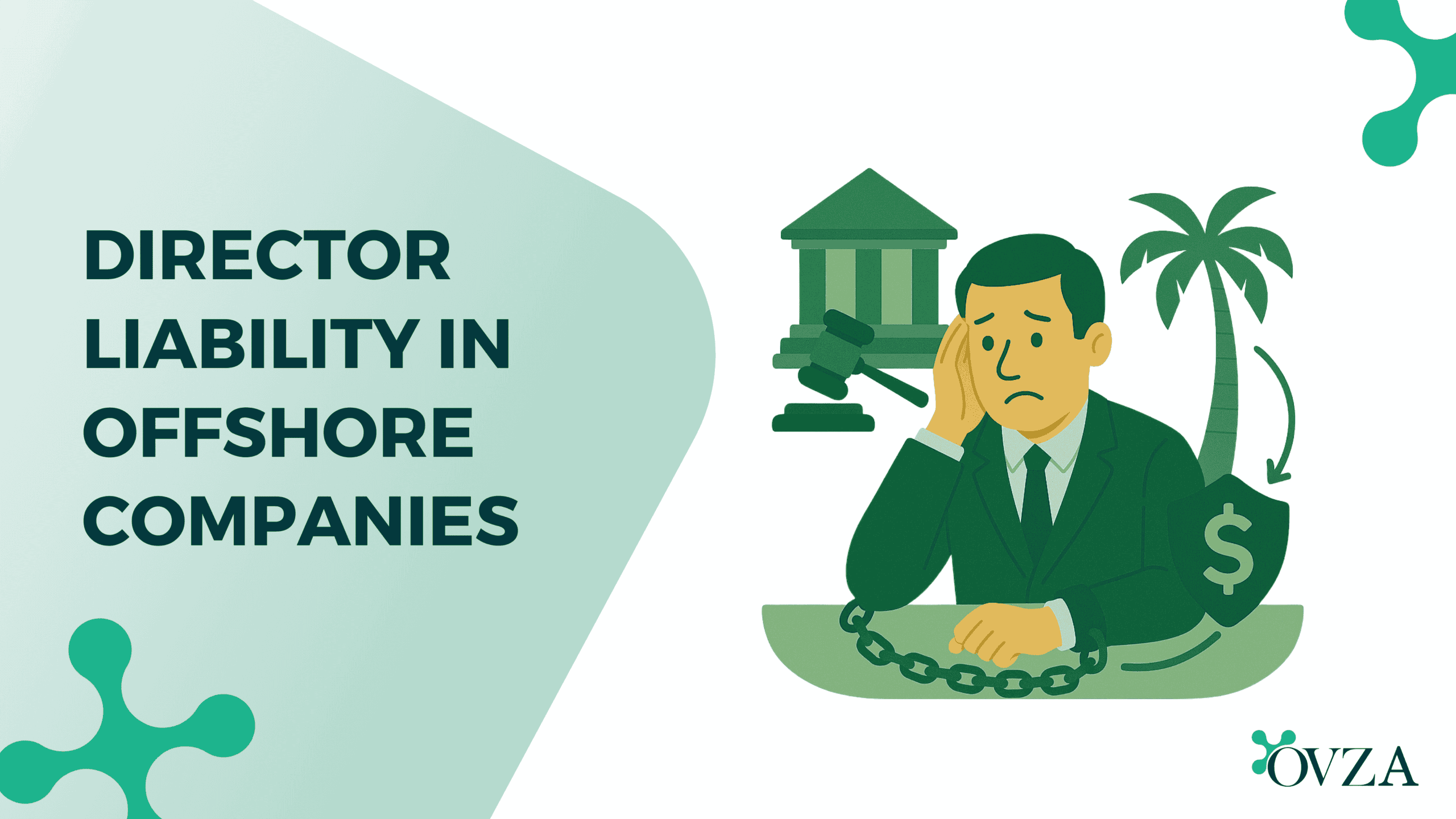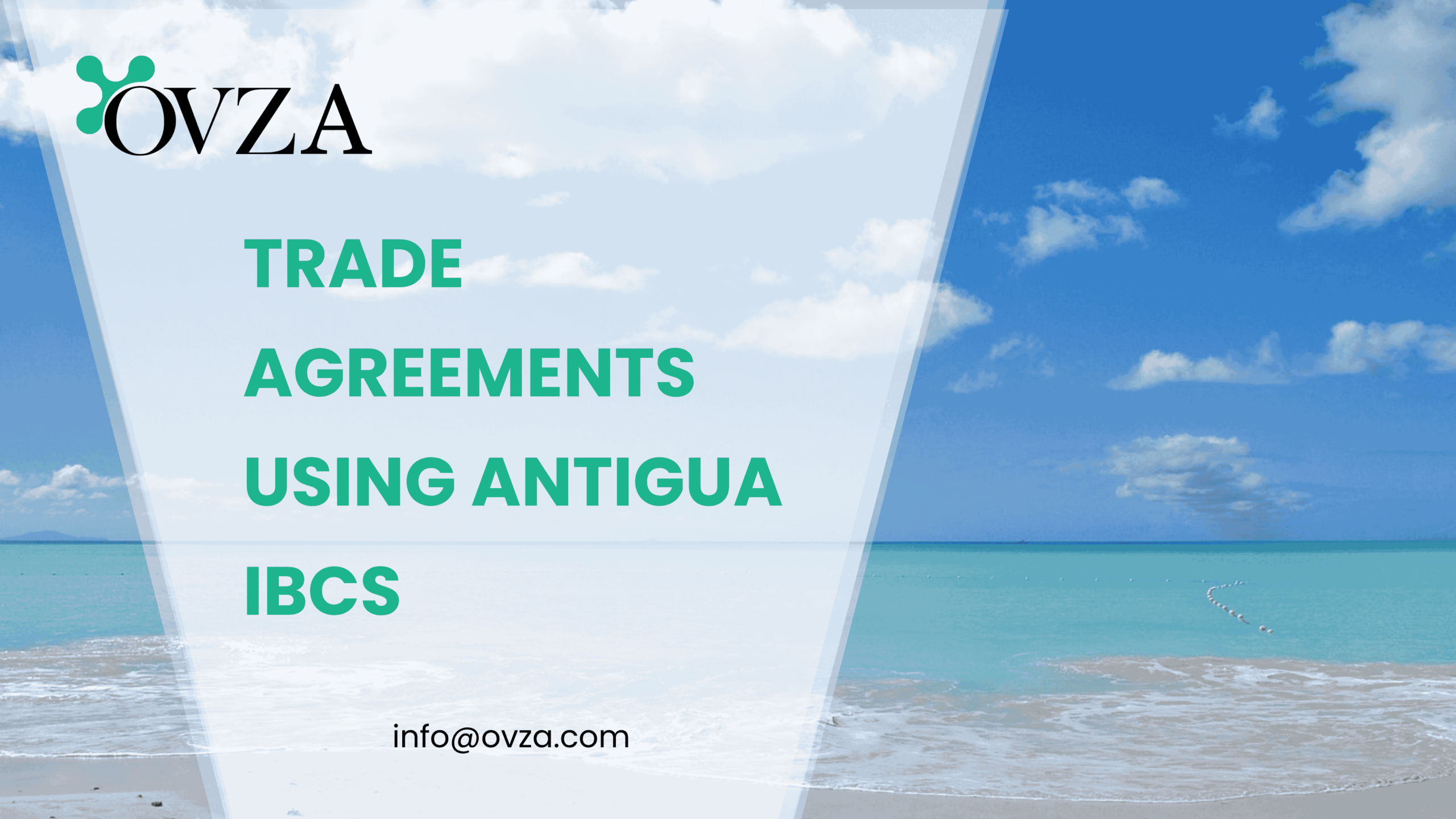Director liability in offshore companies includes fiduciary duties, cross-border risks, and legal safeguards across multiple jurisdictions.
The legal regimes of leading offshore jurisdictions, such as the Cayman Islands, the British Virgin Islands (BVI), and Seychelles, demonstrate a convergence of statutory obligations, judicial scrutiny, and international expectations for responsible directorship.
The legal risks associated with director liability in offshore companies are not confined to local regulatory enforcement. Directors may also be subject to liability arising from multilateral tax compliance regimes such as the Foreign Account Tax Compliance Act (FATCA) and the OECD’s Common Reporting Standard (CRS), as well as international cooperation on tax enforcement and corporate transparency.
Fiduciary Duties and Statutory Obligations of Offshore Directors
The foundational element of director liability in offshore companies is the duty to act in good faith and in the best interests of the company. This fiduciary standard, derived from English common law, applies to most offshore jurisdictions, including the Cayman Islands and the BVI.
Directors are expected to exercise care, skill, and diligence in managing the affairs of the company, and breaches of these duties may result in personal liability, civil penalties, or disqualification from acting as a director.
In the Cayman Islands, the Companies Act (2023 Revision) governs director obligations and includes both fiduciary duties and statutory responsibilities. A similar framework exists under the BVI Business Companies Act, 2004, which codifies directors’ duties to act honestly and in good faith, avoid conflicts of interest, and disclose personal interests in company transactions. Courts in both jurisdictions have demonstrated willingness to pierce the corporate veil where directors have used offshore companies for fraudulent or improper purposes.
Offshore directors are also liable for breaches of statutory obligations, including compliance with anti-money laundering (AML) regulations, tax reporting duties, and local substance requirements. In Mauritius, the Companies Act 2001 provides that directors may be held personally liable where the company trades recklessly, with intent to defraud creditors, or fails to maintain proper accounting records. In the UAE, the Federal Decree-Law No. 32 of 2021 on Commercial Companies imposes similar responsibilities on directors of free zone and offshore entities.
Director liability is heightened by the expanding scope of regulatory oversight. For example, under the Economic Substance (Companies and Limited Partnerships) Act in the Cayman Islands, directors of relevant entities must ensure that the company conducts core income-generating activities within the jurisdiction. Failure to comply may result in fines, regulatory sanctions, or even public disclosure. These legal standards are echoed in jurisdictions such as the BVI and Seychelles, which have adopted similar legislation in response to the OECD’s Base Erosion and Profit Shifting (BEPS) initiative.
Additionally, offshore directors are exposed to transnational liability through global tax enforcement mechanisms. Directors who knowingly fail to comply with FATCA or CRS reporting requirements may face enforcement actions not only in the offshore jurisdiction but also in the tax residence country of the beneficial owner.
The practical implication is that directors must not only fulfill the internal governance standards of offshore entities but also ensure alignment with external legal and regulatory frameworks.
Liability in Cross-Border Transactions and Regulatory Breaches
Director liability in offshore companies extends beyond internal corporate governance and enters the realm of cross-border regulatory exposure. Directors may face civil, regulatory, or even criminal liability for their role in transactions that violate financial laws, sanctions, anti-money laundering provisions, or reporting obligations in other jurisdictions.
One of the most common areas where offshore directors face liability is in the context of international tax compliance. Offshore entities with U.S. persons as shareholders or account holders must comply with the Foreign Account Tax Compliance Act (FATCA), which imposes strict due diligence and reporting obligations on foreign financial institutions. Directors who fail to implement adequate reporting procedures or who approve structures designed to avoid disclosure risk exposure to enforcement by the U.S. Internal Revenue Service (IRS), even when operating outside the United States.
Similarly, the OECD’s Common Reporting Standard (CRS) requires financial institutions and relevant entities in offshore jurisdictions, including those in the Cayman Islands, UAE, Mauritius, and Seychelles, to collect and exchange information about financial accounts held by non-residents. Directors must ensure that appropriate systems are in place for data collection, verification, and transmission to local authorities. Failure to comply can lead to administrative penalties, reputational harm, and breach of fiduciary duty claims.
Enforcement trends in jurisdictions such as the British Virgin Islands and Mauritius reveal that local regulators increasingly target directors for failing to establish and maintain proper internal compliance systems. Directors of companies that engage in transactions without proper Know Your Customer (KYC) checks can be held personally liable if it is determined that they were negligent in fulfilling their oversight obligations.
Judicial precedents in multiple jurisdictions emphasize that a director cannot shield themselves from liability by relying on delegation to service providers or legal counsel. Courts have held that directors must maintain active oversight of company operations, especially where the entity is engaged in high-value or high-risk activities.
The legal requirement of acting “with reasonable care, skill, and diligence” includes the obligation to ask questions, challenge assumptions, and verify compliance.
Mitigation of Director Liability and Legal Safeguards
Director liability in offshore companies can be mitigated through a combination of legal structuring, corporate governance practices, and contractual protections. Although offshore jurisdictions typically provide flexibility in company management, this does not eliminate the requirement for directors to maintain compliance with both domestic and international legal standards. Properly designed frameworks are essential to limit exposure and ensure directors are not personally liable for corporate misconduct or procedural failures.
One of the most effective tools for reducing liability is the use of a robust indemnification clause in the company’s articles of association or a standalone indemnity agreement. Many offshore jurisdictions, including the Cayman Islands under the Companies Act (2023 Revision), permit indemnification of directors for actions taken in good faith within the scope of their authority. These provisions, however, do not protect directors from liability arising from fraud, gross negligence, or willful misconduct.
Directors may also reduce liability by relying on formally documented delegation of duties to licensed service providers, such as registered agents, fund administrators, or legal counsel. However, reliance does not absolve directors of oversight responsibility. Courts across multiple jurisdictions have made clear that delegation must be accompanied by active supervision. The requirement to exercise independent judgment remains a legal standard, regardless of the operational delegation.
Conclusion
The legal liability of directors in offshore companies arises from a multi-layered framework that includes fiduciary duties, statutory obligations, and international regulatory compliance. While offshore jurisdictions continue to offer flexible structures and confidentiality benefits, they also impose increasingly stringent standards for directorial conduct—particularly in the areas of tax compliance, economic substance, and anti-money laundering enforcement.
Director liability cannot be viewed in isolation from global enforcement trends and multilateral agreements, including FATCA and the CRS. As cross-border enforcement becomes more integrated, directors must implement governance frameworks that anticipate regulatory scrutiny across multiple jurisdictions.
Properly drafted indemnities, active board oversight, insurance coverage, and documented compliance procedures are essential components of an effective liability mitigation strategy. Offshore companies that operate in accordance with transparent, well-governed principles are more likely to withstand regulatory challenges, and their directors are better protected against personal exposure under the law.
Disclaimer: The information provided on this website is intended for general reference and educational purposes only. While OVZA makes every effort to ensure accuracy and timeliness, the content should not be considered legal, financial, or tax advice.










